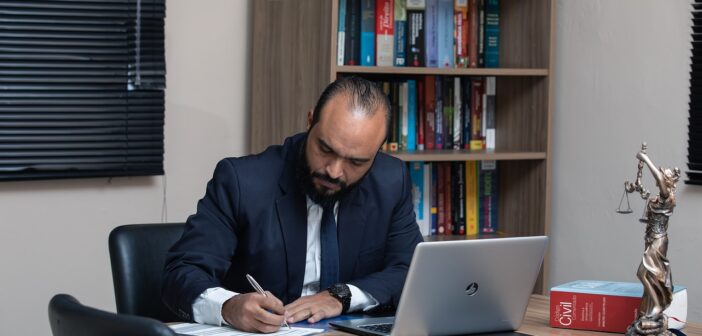photo:https://pixabay.com/
When facing drug possession charges, having a competent and experienced criminal lawyer by your side can make a significant difference in the outcome of your case. Choosing the right legal representation requires careful consideration and a strategic approach. This article explores the key steps and factors to help you find a good criminal lawyer, focusing on understanding specialization, researching and vetting candidates, evaluating experience, assessing communication, and understanding costs.
Understanding the Specialization of Criminal Lawyers
Not all lawyers are created equal, and specialization plays a crucial role when selecting legal representation. Criminal defense lawyers focus specifically on defending individuals accused of crimes. Within this field, some lawyers specialize further in drug-related offenses.
Why Specialization Matters:
- Lawyers experienced in drug possession cases are familiar with local laws and nuances, such as diversion programs or plea bargains that may benefit you.
- According to the American Bar Association (ABA), specialized lawyers are more likely to stay updated on changes in drug laws and precedents, which could significantly impact your defense strategy.
When researching potential lawyers, inquire about their focus on drug-related cases. Some may even have experience with the specific type of drug possession charge you’re facing, which can give you a distinct advantage.
Researching and Vetting Potential Lawyers
Finding the right lawyer begins with thorough research. There are several resources and methods to identify credible legal professionals:
1. Online Directories and Bar Associations:
- Websites such as Avvo and Martindale-Hubbell provide ratings, client reviews, and disciplinary records.
- Check your state’s bar association website to verify the lawyer’s credentials and ensure they’re in good standing.
2. Personal Recommendations:
- Ask friends or family members if they know reputable criminal defense attorneys.
- Seek referrals from other professionals, such as civil lawyers or legal aid organizations.
3. Red Flags to Avoid:
- Lawyers with a history of disciplinary actions or complaints.
- Professionals who guarantee specific outcomes, as ethical lawyers understand the unpredictability of legal proceedings.
Evaluating Experience and Track Record
A lawyer’s experience and past performance can provide insight into their ability to handle your case effectively. Here’s how to evaluate their qualifications:
1. Years of Practice:
- Look for lawyers with at least 5-10 years of experience in criminal defense.
2. Success in Drug Possession Cases:
- During consultations, ask about their success rate with cases similar to yours.
- Inquire about their familiarity with local courts, judges, and prosecutors, as this can influence strategy.
3. Case Studies and References:
- Request examples of past cases they’ve handled and how they achieved favorable outcomes.
- Ask for references from former clients who can speak to their professionalism and effectiveness.
Assessing Communication and Compatibility
Effective communication and a good rapport are essential for a successful attorney-client relationship. Consider the following when evaluating a lawyer’s communication skills:
1. Accessibility:
- Are they responsive to emails and phone calls? Timely communication is critical during a legal crisis.
- Look for lawyers who provide direct contact information and have a clear communication plan.
2. Transparency:
- A good lawyer should explain legal terms, processes, and potential outcomes in a way you can understand.
- They should be honest about your case’s strengths and weaknesses.
3. Personal Compatibility:
- Trust your instincts. If you feel comfortable discussing sensitive details with them, they’re likely a good fit.
- During the initial consultation, observe their demeanor and willingness to listen.
Understanding Costs and Fee Structures
Legal representation can be costly, but understanding a lawyer’s fee structure upfront helps avoid surprises. Here’s what to know:
1. Common Fee Arrangements:
- Flat Fees: A set amount for handling your case. This is common for straightforward cases.
- Hourly Rates: You pay for the time the lawyer spends on your case. Rates can vary widely, ranging from $150 to $500 per hour depending on experience and location.
- Retainers: An upfront payment that the lawyer draws from as they work on your case.
2. Requesting Cost Estimates:
- Ask for a written estimate during the consultation, including potential additional expenses such as court fees or expert witnesses.
- Compare quotes from multiple lawyers to ensure you’re getting value for your money.
3. Budgeting Tools and Assistance:
- Utilize tools like LegalMatch to find lawyers within your budget.
- Some lawyers offer payment plans or sliding scale fees based on income.
Leveraging Real-Time Tools and Resources
In today’s digital age, several tools can assist in finding and vetting lawyers:
- Online Reviews: Platforms like Google Reviews and Yelp can provide insights into a lawyer’s reputation and client satisfaction.
- Case Outcome Predictors: Some legal tech platforms offer tools to estimate the potential outcome of your case based on data from similar cases.
- Virtual Consultations: Many lawyers now offer video consultations, making it easier to interview multiple candidates without traveling.
Frequently Asked Questions (FAQs)
1. What qualifications should I look for in a criminal lawyer? Look for a lawyer with specialization in criminal defense, experience with drug possession cases, and a good track record of success.
2. How much does a criminal lawyer for drug possession charges typically cost? Costs vary based on the lawyer’s experience and location, ranging from $150 to $500 per hour or flat fees for straightforward cases.
3. Can I get a free consultation with a criminal lawyer? Many criminal defense lawyers offer free initial consultations. Use this opportunity to assess their expertise and compatibility.
4. What should I bring to the initial consultation with a lawyer? Bring all relevant documents, including arrest records, court notices, and any evidence related to your case.
5. How do I verify a lawyer’s credentials? Check your state’s bar association website to ensure the lawyer is licensed and in good standing.
6. What if I can’t afford a private criminal lawyer? If you can’t afford a lawyer, you may qualify for a public defender. Some private lawyers also offer payment plans or sliding scale fees.
7. How long does a drug possession case usually take to resolve? The timeline varies based on the complexity of the case, ranging from a few months to over a year for more serious charges.
Conclusion
Finding a good criminal lawyer for drug possession charges is a critical step in protecting your rights and achieving the best possible outcome. By understanding specialization, conducting thorough research, evaluating experience, assessing communication, and understanding costs, you can make an informed decision. Take advantage of online resources and tools to streamline the process and ensure you choose a lawyer who aligns with your needs and goals. Remember, investing time in finding the right legal representation can make all the difference in your case’s outcome.



